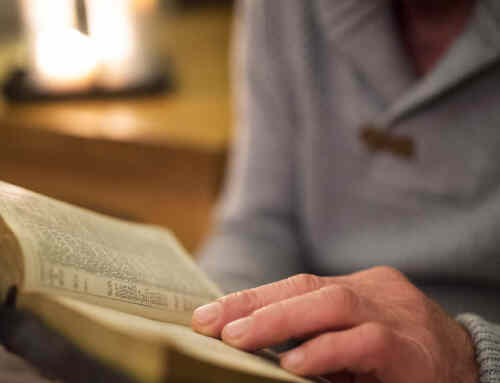The “body of Christ” refers to Jesus plus his faithful followers. We want to be integrated into the body, so that what we work on in our own individual growth experiences can positively relate to the other body members. The simple fact is we are in this together and need to support one another.
The body of Christ is dependent upon this type of spiritual fellowship of interdependency and participation with individuals who come from all walks of life.
We have the privilege to contribute to others who are called of God: Matthew 25:40: (KJV) …Verily I say unto you, inasmuch as ye have done it unto one of the least of these, my brethren, you have done it unto me.
Our fellowship is hard at times because we are so different, but it is so rich and worth our effort because we are so different. All of those called are on equal footing before God through Christ.
Since the human body has different parts with different roles, the Apostle Paul explained this is true with the followers of Christ. The Corinthian brethren had developed schisms and divisions over their preference of teachers (1 Corinthians 1:11-13, 3:1-7). Paul implies that there were also divisions among the brethren based on their position in the body of Christ.
1 Corinthians 12:12-26: (NASB) For even as the body is one and yet has many members, and all the members of the body, though they are many, are one body, so also is Christ. For by one spirit we were all baptized into one body, whether Jews or Greeks, whether slaves or free, and we were all made to drink of one spirit. For the body is not one member, but many.
Paul’s wording suggests that some brethren—perhaps Greeks, slaves, and women—might have felt their position in the body was so small or inconsequential that they were not equal members. That was the wrong conclusion. Those who play different and potentially less focused-on roles are still vital to the body.
If the foot says, Because I am not a hand, I am not a part of the body, it is not for this reason any the less a part of the body. And if the ear says, Because I am not an eye, I am not a part of the body, it is not for this reason any the less a part of the body. If the whole body were an eye, where would the hearing be? If the whole were hearing, where would the sense of smell be?
Both the “eye” and the “ear” are important. The Apostle Paul wisely describes a unification, not a competition. Every member has value, and we need each other. We are to approach those who are challenged with absolute respect for whatever their part is in the body. This can help lift them out of a lethargy and frustration, providing an opportunity for refocus if they are depressed.
There is both equality and individuality within the body of Christ. We want to be on guard against the sin of comparison.
But now God has placed the members, each one of them, in the body, just as He desired. If they were all one member, where would the body be? But now there are many members, but one body.
How do we show our appreciation for others? Can we do better? We should let others know that we value their qualities. We all need encouragement.
God has placed the members…as He desired. We don’t want to look down on another that God personally placed. Those in positions of relative honor are not in any way or under any circumstance better than or exclusive from the less obvious members.
Then, in 1 Corinthians 12:21-24, Paul looks at the situation from the other side. Perhaps the more prominent of the brethren—Jews, free, and men—were taking a dismissive view of others:
And the eye cannot say to the hand, I have no need of you; or again the head to the feet, I have no need of you. On the contrary, it is much truer that the members of the body which seem to be weaker are necessary; and those members of the body which we deem less honorable, on these we bestow more abundant honor, and our less presentable members become much more presentable, whereas our more presentable members have no need of it. But God has so composed the body, giving more abundant honor to that member which lacked.
God had organized the body to make the best use of the talents, experiences, and position of each one for their benefit and that of the overall body.
Why are the weaker honored more? Because there is greater glory given to God in what He is able to do for those who lack. When we look at someone with lots of talent and someone with little talent as they both glorify God, we see them given the same reward?being part of the body of Christ. God’s glory shines brighter when we are weak. This should be an encouragement among those not in a good situation.
Approach those who may feel small, insignificant and without use by reminding them of their highly honored position of respected and needed inclusion. Realize that God’s intention in setting up the body of Christ this way was and is to have a fully functioning, unified and healthy body that would always unite to accomplish the next task at hand:
…so that there may be no division in the body, but that the members may have the same care for one another. And if one member suffers, all the members suffer with it; if one member is honored, all the members rejoice with it.
Approach those who are weary and heavy laden with the good news of not needing to feel or be alone in their struggle. If one suffers, all of us suffer. When one is honored, we all rejoice. No one in the body of Christ should be alone! When those in the fellowship are feeling down and out, we can reach out and encourage them with the picture and the principles and the doctrine of the body of Christ and how it all works together.
Additional Resource:
Christian Questions Podcast
Episode #1270: “How Strong Are My Relationships? (Part III)”
Building strong and effective brotherhood relationships in Christ
Preview Video
CQ Rewind Show Notes















